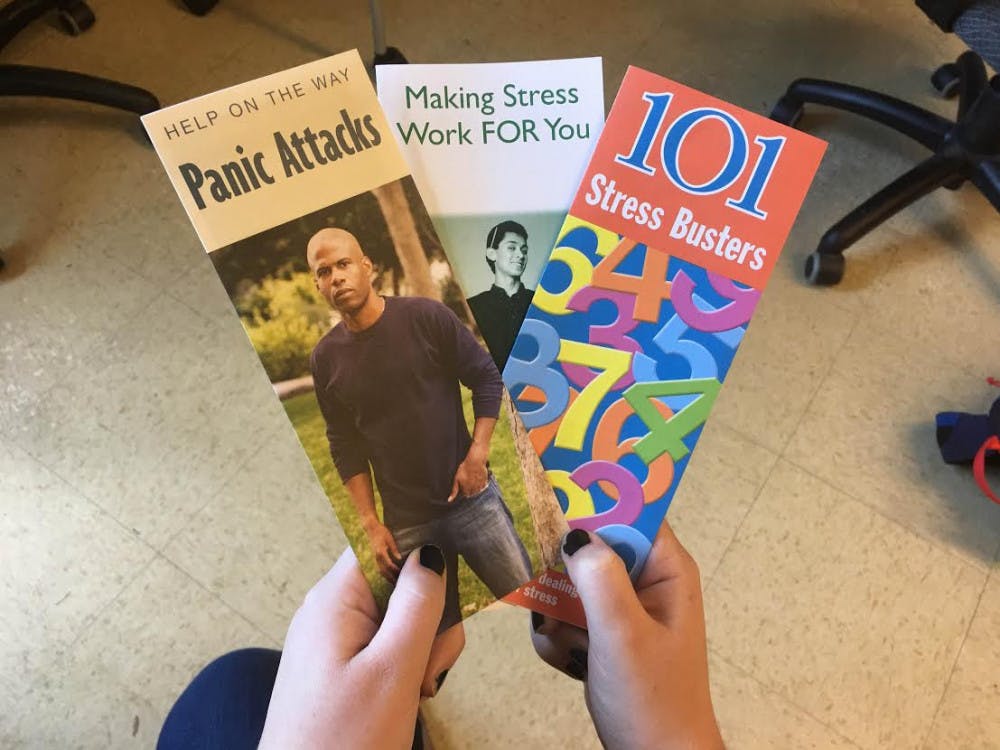By Mark J. Forest
Director of Counseling and Psychological Services
College mental health has been under the national microscope for several years now, and for good reason. Studies show that the level of anxiety, depression and inability to cope with stress, loss and failure is alarmingly high. The concerns that bring students into counseling centers across the country are more urgent than ever before and increasing in frequency.
According to a 2015 article titled “Crisis U” in Psychology Today, on a national level, approximately 22 percent of college students seek counseling each year — a trend that has been growing for decades with no sign of slowing down. It has been estimated that one in three students now starts college with a prior diagnosis of a mental disorder.

In addition, recent national data indicates that, on average over the last five years, while institutional enrollment grew by 5.6 percent, the number of students seeking services increased by 29.6 percent, and the number of attended appointments increased by 38.4 percent. In other words, the number of students treated by counseling centers grew at more than five times the rate of institutional enrollment, while the number of attended appointments grew at more than seven times the pace of institutional enrollment.
Needless to say, the resulting demand for services at counseling centers around the country has steadily increased over recent years, and the College’s Counseling and Psychological Services (CAPS) is seeing the same pattern as the rest of the country. Therefore, we felt it appropriate to share under these circumstances how CAPS and the College have responded. With the support of the College administration, CAPS has taken several steps to address the mental health needs of our students in some important ways:
• Staffing at CAPS was increased by 35 percent in 2014. This included two new full-time licensed counselors and a part-time psychiatrist, including a new clinical case manager who helps students get connected to a higher level of care, when needed. The staffing levels at CAPS currently exceed the standards set by the International Association of Counseling Services.
• Urgent appointments were also increased every day during regular business hours to meet the need of students who require immediate attention.
• CAPS has increased its prevention and outreach programming to the College community with a focus on stigma reduction, early identification of mental health concerns, practical coping skills for self-management and awareness of a variety of resources for campus support. This includes systematic mental health training for members of the campus community including first responders, faculty, staff and student groups who interact with students on a regular basis.
• CAPS initiated the development of a Mental Health Promotion and Suicide Prevention Task Force that comprises faculty, staff and students that meets regularly to review, develop and implement mental health policies, procedures and initiatives to support the health and wellness of students.
• CAPS partners with local and regional mental health and substance abuse treatment providers to offer services to students who require more extensive or specialized care. This includes a new referral database that is housed at CAPS, but shared with several other departments across campus.
The CAPS scope of service includes brief individual counseling, a robust group program (currently offering 20 groups), emergency or urgent assessments, case management services, outreach and consultation services to the College community and professional training. Brief counseling is defined on an individualized basis depending upon the student’s presenting concerns. There is no rigid session limit.
While we would love to offer long-term counseling to our students — and understand that it is often more convenient for students to be seen on campus — this is simply not possible given the demand for services, nor is it the standard across the country, as the vast majority of centers provide short-term counseling with referrals for ongoing and specialized care.
CAPS is dedicated to offering the best mental health services to the largest number of students that we can. We are constantly evaluating the services we offer, and continue to explore new ways to address the needs of our students, especially those with more significant needs than we can provide, and those with both financial and transportation challenges.







